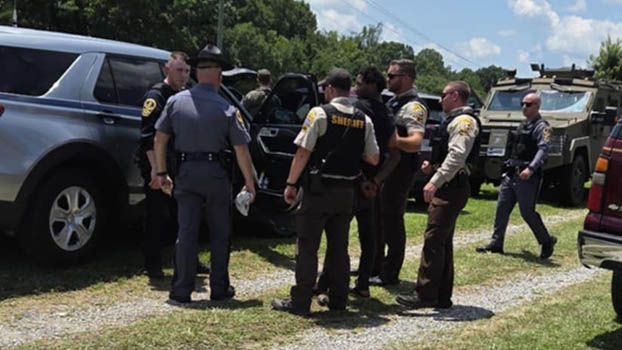Budget Fight Isn't Fiscally Fit, So Stop
Published 4:31 pm Thursday, April 10, 2014
FARMVILLE — Town Council passed a resolution Wednesday night urging the General Assembly and Governor Terry McAuliffe “to reconcile their differences and agree on a…budget.”
Approximately 70 governing bodies across the state have passed the same resolution, including Prince Edward County’s Board of Supervisors on Tuesday night, calling on Richmond to get its act together before there is a government shut-down.
A special session called by the governor to find common budgetary ground has grinded the legislative gears to a virtual halt, instead.
The budget impasse in Richmond—driven by differences over Medicaid expansion related to President Obama’s healthcare reform—is so severe that state senators had already left Richmond on Tuesday by the time the House of Delegates convened.
The US Supreme Court has ruled that states can opt out of the expansion of Medicaid to cover additional low-income adults and the House of Delegates is determined to do so until there are reforms to Medicaid.
Governor McAuliffe vigorously supports the Medicaid expansion to cover approximately 250,000 additional low-income Virginians who are currently uninsured—as does the State Senate—making it his number one priority, and believes the federal funds to achieve that goal are crucial and needed now.
The Democrat-controlled Senate and GOP-dominated House have passed their own versions of a two-year state budget, to go with Governor McAuliffe’s proposal, but Delegates won’t consider the Senate version and Senators refuse to take action on the House version.
And both sides are pointing loaded fingers at each other, the budget caught in a political no-man’s land.
The Associated Press, in a Tuesday story by Rob Suderman, quotes House Speaker William Howell saying, “It’s clear we want to get this thing done. And it’s clear that the Democrats in the Senate and the governor are the ones that are stalling.”
Meanwhile, Democratic Senator Richard Saslaw was telling the AP that Republicans are to blame. “These are the people that campaign against government…and they’ve got the chutzpah to accuse us of wanting to shut down government. I find that just a little bit ironic,” he said.
Town Council’s resolution notes Farmville’s dependence on state funds and the impact the budget tug of war could have on residents and, with its own irony, reminds the legislature and governor that more than a few of the services are state mandates.
Funds from the state, the resolution points out, “comprise a portion of revenues necessary for the Town of Farmville to deliver many of the public services mandated by the Commonwealth.”
The delivery of those mandated services, the Town’s resolution declares, “depends upon a stable and healthy partnership between state and local governments.”
Without timely approval of a state budget, Town Council’s resolution continues, Virginia public agencies and businesses will not be able to operate effectively.
Town Council member Jamie Davis said the resolution simply asks the legislature and the governor to “go ahead and work together and get that taken care of. Any support, I’m sure, any encouragement is well-needed.”
Those observing the quagmire in Richmond have been unable to find signs that the budget stalemate will end by July 1.
The House is opposed to any Medicaid expansion and wants Medicaid completely cut-off from any budget discussions or action. The Senate passed a budget this week that proposes a private-option plan to cover uninsured Virginians with federal Medicaid funds.
Neither side has shown any desire at all to shift from their entrenched positions and both the House of Delegates and State Senate left Richmond this week with no plan to return and complete a budget.
There are local financial implications that have not been widely circulated.
In a March 31 report, The Commonwealth Institute reports that accepting the federal funds “to help nearly 400,000 Virginians without health insurance get the care they need to be healthy and productive would save localities millions currently spent to help the uninsured, free up state funds for critical local functions like education and public safety, and bolster local economies by supporting good jobs and generating new tax revenue.
“But if the General Assembly refuses to close the coverage gap, localities will be left to meet the demand for basic services while their poorest residents go without coverage,” the institute notes.
With area counties spending more and more on the Piedmont Regional Jail, a few local officials have noted the institute’s pointing out that “localities could also save $6 million per year by using federal funds to cover the local jail inmates’ hospital costs, which localities are required to pay.”
The institute also states that 22,000 people who get mental health or substance abuse treatment through their community service boards could get health insurance, “saving localities an average of $28 million per year through 2022.”
Virginia could expect, the report continues, “an average infusion of $1.8 billion of federal funds from closing the coverage gap, which would add up to $14.5 billion through 2022. The bulk of those resources would flow directly into Virginia’s health care sector, supporting nearly 30,000 well-paying health care jobs by 2022 and generate an average of nearly $20 million in local tax revenues each year.”




